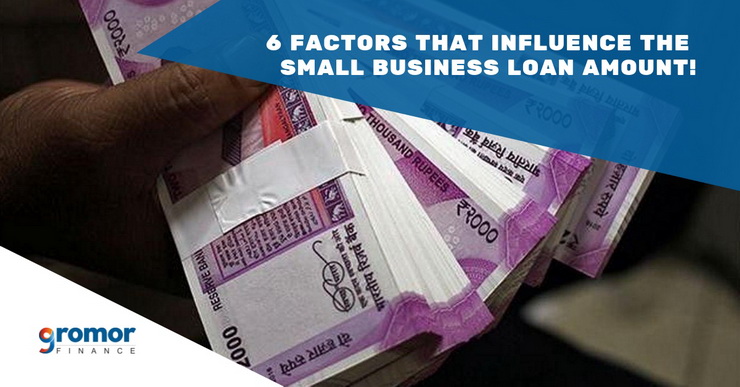All lending institutions have certain eligibility criteria and documentation to assess if a small business should be assigned the loan or not. The small business loan amount finally disbursed also depends on certain factors. Let’s take a look at them.
6 Factors That Determine The Small Business Loan Amount Disbursed!
Here are a few factors that influence the business loan amount disbursed by the lending institutions.
1. Credit History and Score
Most lenders use the CIBIL score as the primary tool to assess the business’s credit history and loan eligibility. At the same time, they also check if the small business owner has a good personal credit score.
Most lenders decide the small business loan amount, interest rate, and repayment schedule based on the business’s credit history and the small business owner’s credit score.
2. Financial Performance and Standing
Lenders normally evaluate the financial health and performance of a small business based on its profit and loss account/income statement, balance sheet, and cash flow statements.
These financial documents help lending institutions to assess the financial performance and potential of a small business by calculating important financial ratios like debt-to-equity, liquidity and operating margin.
3. Collateral
Usually, banks reduce lending risk by requiring the small business owner to use his assets as collateral to secure the business loan.
In case the borrower fails to repay the loan timely and fully, the lending institution can recover the credit by seizing and selling the collateral.
However, lenders allow small businesses to use their stock, equipment, and similar business assets as collateral. Institutions like NBFCs offer collateral-free small business loans!
4. Personal Guarantees
Many lenders ask the borrower to bring guarantors on board if the business is owned by several partners or its ownership and management is separated.
The borrower has to submit personal financial statements of each stakeholder in a standardized form provided by the lender.
The lender will review the financial statements of individual owners to ensure that they remain associated with the small business till the loan is repaid in full.
5. Insurance Information
In addition to reviewing the personal guarantee of owners, lenders check if the co-owners or key founders have purchased life insurance policies.
The life insurance policies ensure that the small business is not liquidated in case of the death of a co-owner.
The lender can even ask the borrowers to use the compensation received from the insurance company towards loan repayment.
6. Age Of The Business
While reviewing small business loan applications, many lending institutions also consider the period for which the business has been operating. Most lenders prefer providing credit to small businesses that have been operational over a few years.
To avail quick, unsecured small business loans, get in touch with Gromor today!


